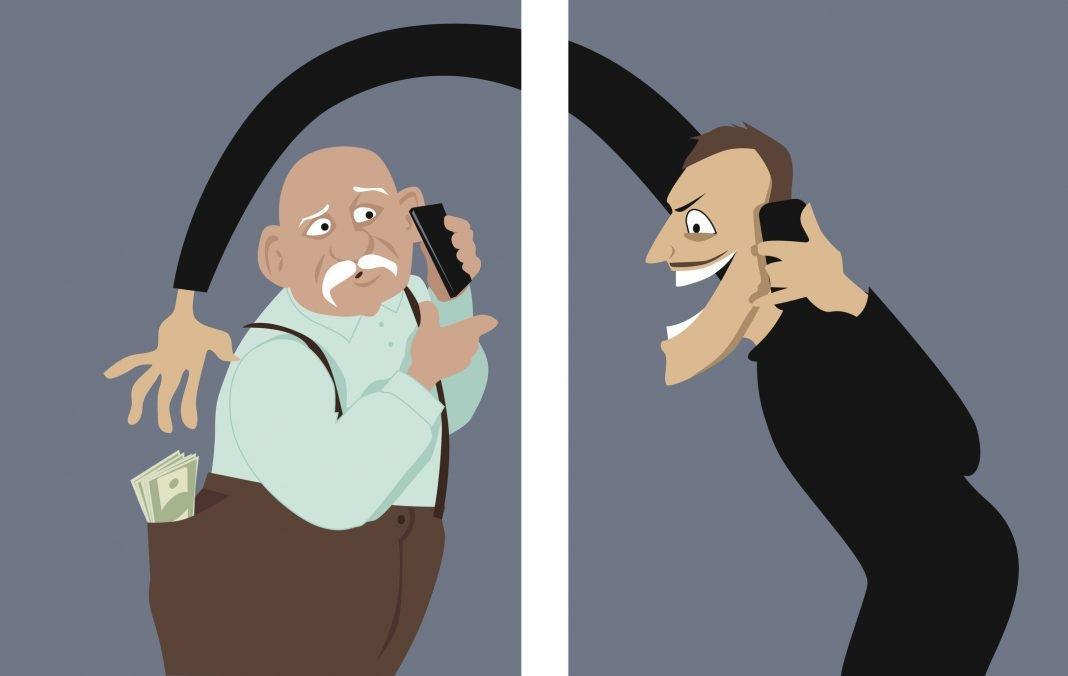A few months ago, a relative of mine in Sacramento received a call from his granddaughter. She was calling from a jail in Florida after having crashed her car, broken her nose, and getting arrested. She was sobbing, and pleaded with him to not tell her parents or anyone else, and to send money along in the form of Best Buy gift cards so she could make bail. In a panic, he bought a large number of gift cards (to the strenuous objections of the Best Buy employees who were helping him make the purchase) and transferred them to his “granddaughter.”
You can probably guess how this played out: His granddaughter was thousands of miles from Florida–both her nose and clean criminal record intact–completely unaware that her grandfather was getting duped by the legendary Grandparent Scam.
The relative in question isn’t really a gullible or foolish person (although he certainly felt like both after he realized he’d been had). He’s well-traveled, educated and comfortably retired after spending decades living abroad in a high-level job working for the U.S. government. Despite being in his 80s, he’s of sound mind, active in his community, and was the sort of person who in other circumstances would have been extremely difficult to pull a fast one on. And yet he took the bait hook, line, and sinker…
So why did it happen? To get a better understanding, we need to examine the components of the scam.
Identifying the Target
The elderly and millennials are both common targets for scammers for largely the same reason: there’s a lot of information available about both online. Whereas millennials are often vulnerable as a result of over-sharing on social media, the elderly have spent a longer time on the ‘grid,’ are more likely to have landlines, and are also more likely to have had the same mailing address for an extended period of time.
To put this to the test, I looked my scammed relative and quickly found his age, phone number and address, as well as the names of his children and grandchildren. All this information was readily available on whitepages.com. A quick look at his address on Zillow.com showed me the estimated value of his house.
There isn’t any need for a scammer to do sophisticated Cambridge Analytica-style data mining; all that’s needed is to type in any common-sounding name, scan the results for anyone 80+ in age, and you can have a full list of potential marks in a matter of minutes. Much like infamous Nigerian 419 scams, it’s possible to cast a wide net, get rejected hundreds of times and still get enough victims for the process to be lucrative.
Selling the Scam
Knowing how he was targeted leaves the larger question of why he went along with it. The person on the other end didn’t sound like his granddaughter, but as he said, “If she was tired and had a broken nose and was calling from a payphone, she would sound different.”
“She just sounded so scared and so frantic,” he said. “I just wanted to help.”
It’s easy to be skeptical (and frustrated) after the fact. So many seemingly obvious clues that something wasn’t quite right with the story are always a snap to spot after the fact. The panic and confusion that goes along with getting a call out of the blue from someone you care about who’s in deep trouble and needs your help is hard to quell. Scammers are good at making you believe their stories–their goal is to make you panic enough to act first and ask questions later.
Why Grandparents?
Taking the ease of finding grandparents out of the equation, why aren’t there versions of this scam that targets parents, aunts and uncles? There are a few reasons and considerations:
- Most Americans above the age of 65 have grandchildren – 83% according to a 2015 statistic. Odds are, if you call a random senior citizen, they’ll have a grandchild and will most likely be concerned if they need help.
- The older the grandparent, the less likely they are to know where their grandchildren are: Grandparents in the U.S. are less likely to be actively involved in child-rearing when their grandchildren are younger compared to other countries, and the older they are, the more likely their grandchildren would have gone to college in another city or state. Parents are more likely to have had recent communication with their children and know their whereabouts.
What Can Be Done?
The Grandparent Scam is a big business: the FTC reported 350,000 scams in 2017 involving $328 million lost to imposters, which doesn’t take into consideration the likely larger number of people who declined to report having fallen victim out of humiliation. It largely succeeds on the virtue of easy access to information to victims and a lack of communication within families. While there’s no way to be 100% invulnerable to it, the following steps can help the seniors in your life be harder targets to exploit:
- Lock down your privacy settings and encourage your relatives to do the same: Posting pictures of your entire family and their names to the general public makes everyone more vulnerable to scams and identity theft. There are non-public ways to be able to share photos and memories with your relatives, and ways to limit access to your account on social media.
- Educate relatives about imposter scams: The Grandparent Scam relies on a strikingly consistent set of details–there’s a panicked call, trouble with the law, and the broken nose explanation for sounding different over the phone. Some advance warning will make it easier for the grandparents in question to keep a cool head and report the scammers to the authorities.
- Call your grandparents: They’d probably like to hear from you even if they’re not getting actively scammed.










